
Chicago's Finest by Retro Images Archive Chicago's Finest Photograph Chicago's Finest Fine
Police uniforms in the United States. Police uniforms in the United States vary widely due to the nation's tradition of highly decentralized law enforcement. Over time, however, a number of general conventions and styles have become representative of American police fashion. Police officers wear uniforms to deter crime by establishing a visible.

21 Amazing Photos of Oregon's Major Cities In The 1940s
Well into the 1940s and beyond corruption of America's police departments was common in cities large and small. Some politicians, such as Theodore Roosevelt, made their reputations exposing such corruption. Others profited from it. Police officers accepted pay-offs to allow illegal gambling, the operation of brothels, narcotics, and other vices.
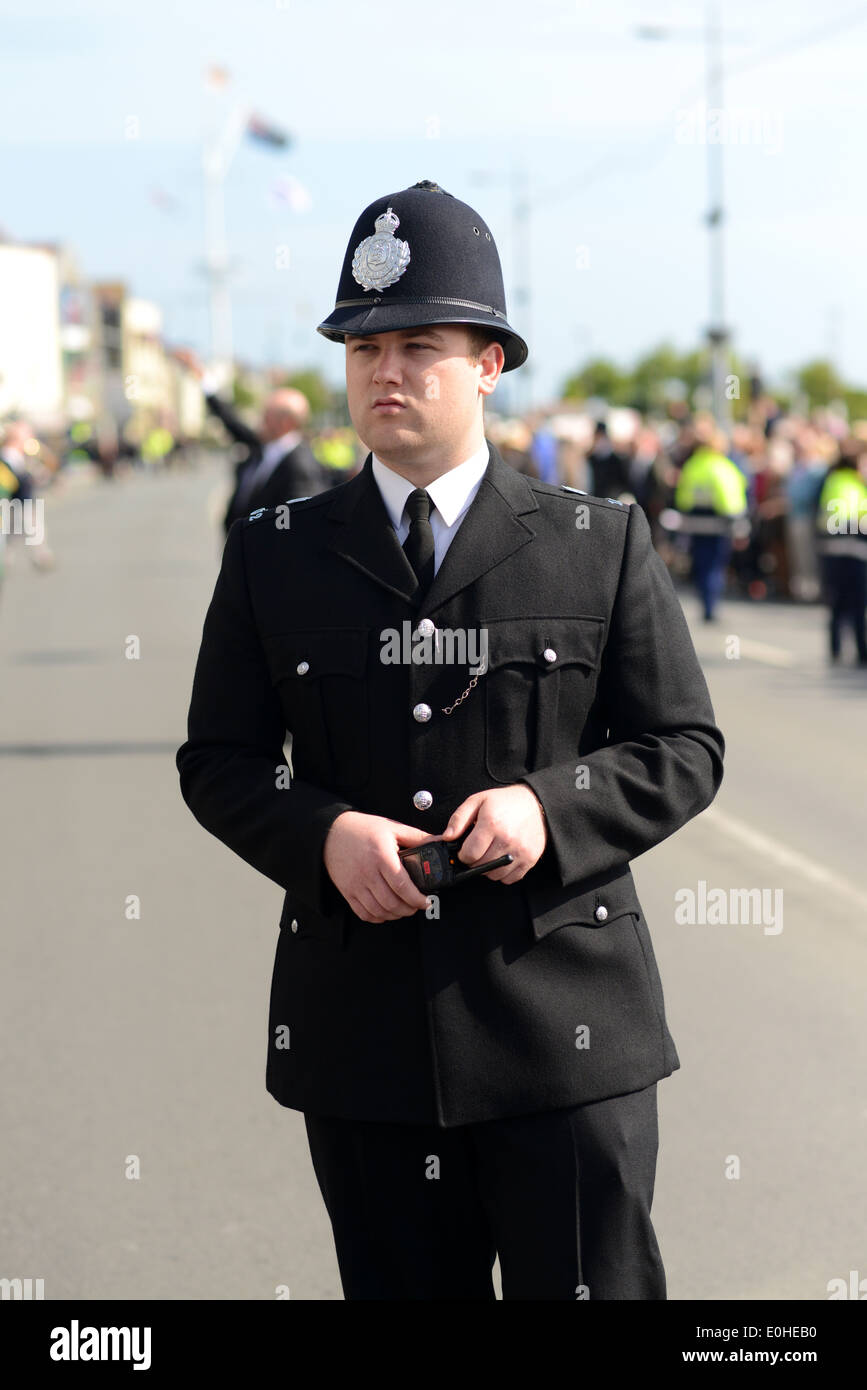
A modern day policeman on duty wearing a 1940's police uniform Stock Photo 69225940 Alamy
By 1940, after millions of black people had migrated from the South for a better life up North, the numbers had reversed.. deployed 6,600 police officers to Harlem, who were joined by 8,000.

Photography circa 1940's Police, Police uniforms, Police station
Police officers struck in New York City in 1971; in Baltimore in 1974 and in San Francisco in 1975. "Job actions" such as "blue flue" and work slowdowns (i.e. not writing tickets, making few arrests) were common in other cities.
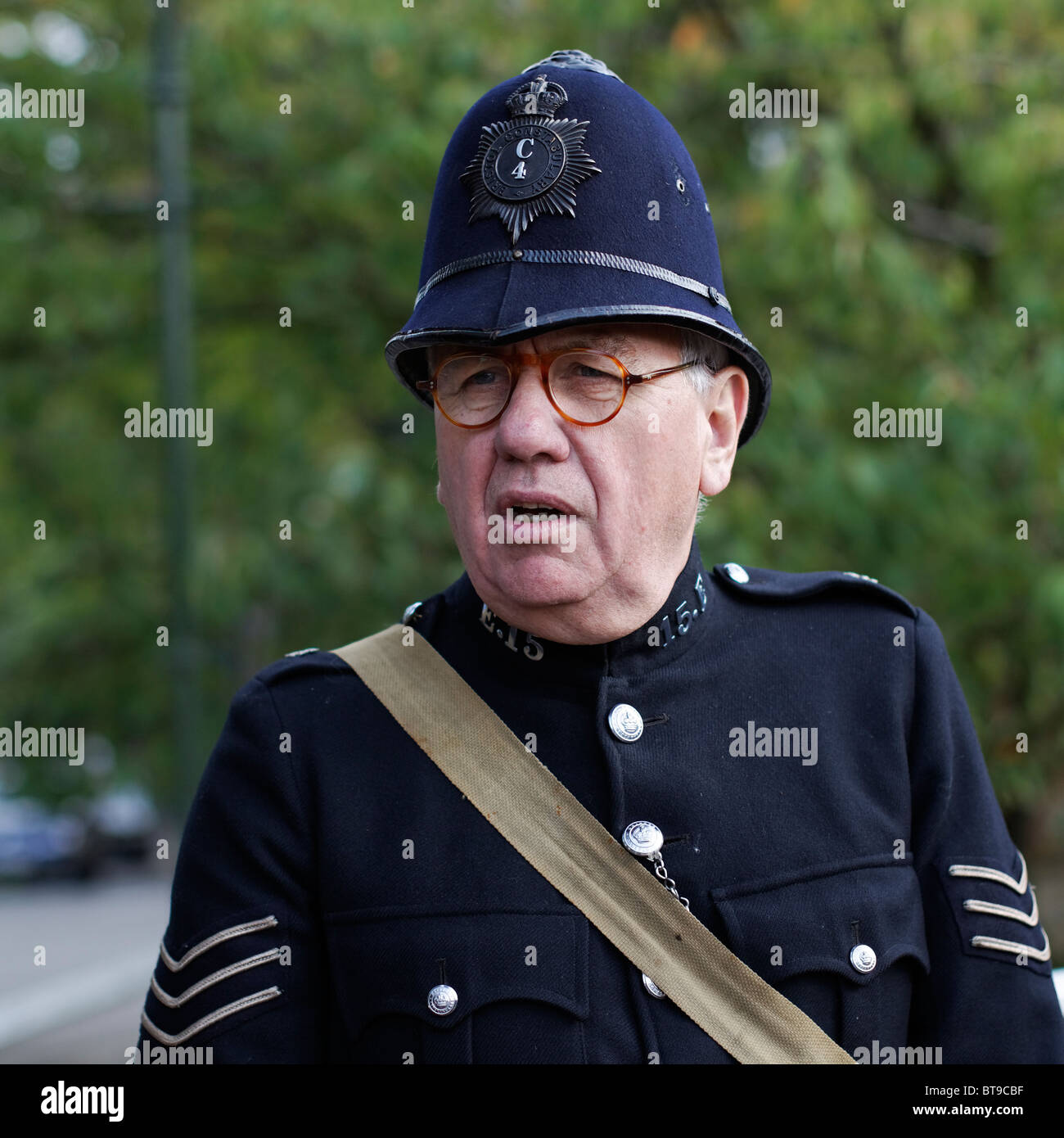
1940's War Years British Bobby Police Sergeant in Buttoned Blue Tunic with Sleeve Insignia
1940-1949: Police and crime. Nov. 27, 1999 12 AM PT. Leslie Simmons. The decade of the 1940s was a time of war for the world and a period. of change for the Glendale Police Department. The reality.
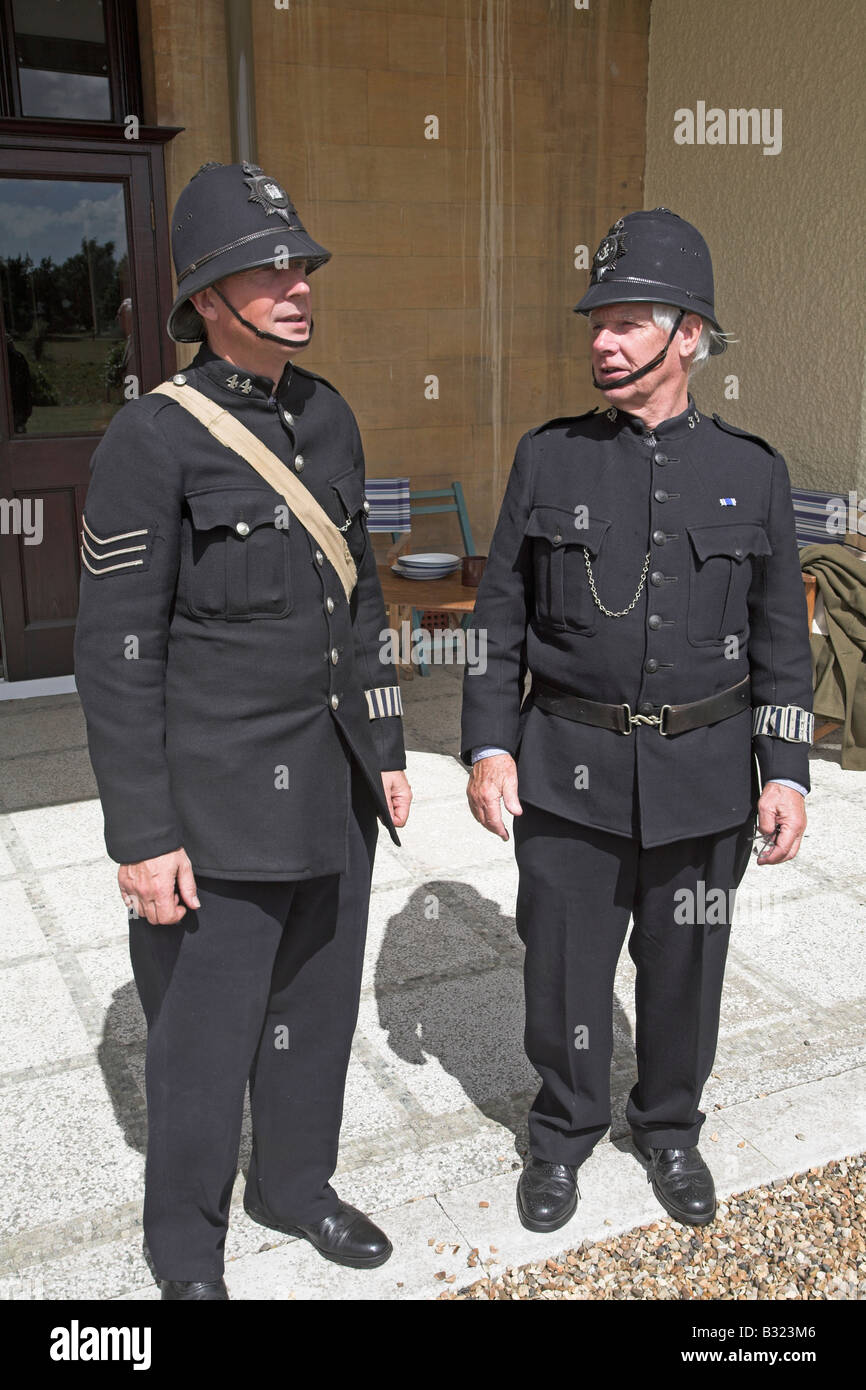
Two men dressed in 1940s police uniform Stock Photo Alamy
Early police in the United States. The United States inherited England's Anglo-Saxon common law and its system of social obligation, sheriffs, constables, watchmen, and stipendiary justice.As both societies became less rural and agrarian and more urban and industrialized, crime, riots, and other public disturbances became more common. Yet Americans, like the English, were wary of creating.

NYPD Lt. Samuel L. Battle, 1941 Mr. Battle became first AfricanAmerican NYC Police Officer in
The New York Police Department, for instance, requires at least 60 college credits to be hired as a police officer. However, to be promoted, a bachelor's and subsequent graduate degrees are also needed. In 1976, in Golden, Colorado, a sheriff advertised for deputies not under "jobs in law enforcement," but under "jobs in philosophy.".

Gentleman dressed in 1940's vintage Police uniform Stock Photo Alamy
Senior Constable Clarrie Pirie was the Officer-in-Charge of the Capertee Police Station from 1958 until his death on 13 October, 1960. On that day he was informed by Lithgow Police that two male offenders had abandoned a stolen car at Cudgigong, north of Capertee.. While patrolling the area Senior Constable Pirie found two fourteen year-olds with a vehicle at a roadside camping area at Jews.
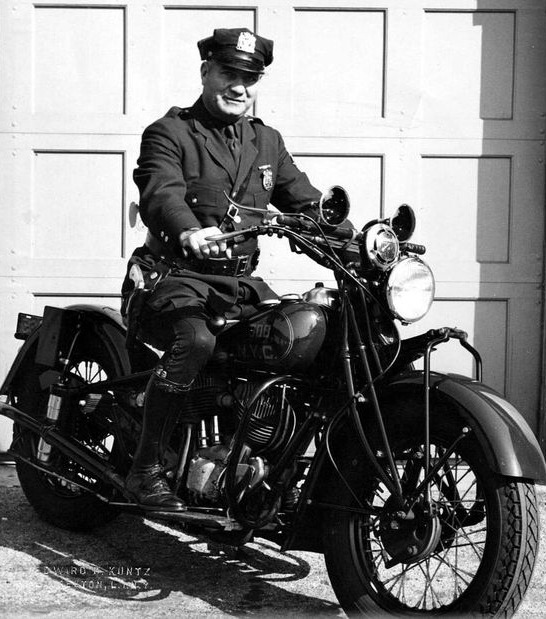
Futures Police, 1940s
RM 2C60FEE - 1942. More than 1,500 city and state military and police officers guard camper-hauled black out-of-towners who are being resettled, as part of a Feder RM T80A79 - A sleeve badge for officers of the Norwegian Legion, who previously were members of the Nasjonal Samling Rikshird (equivalent to the German SA).
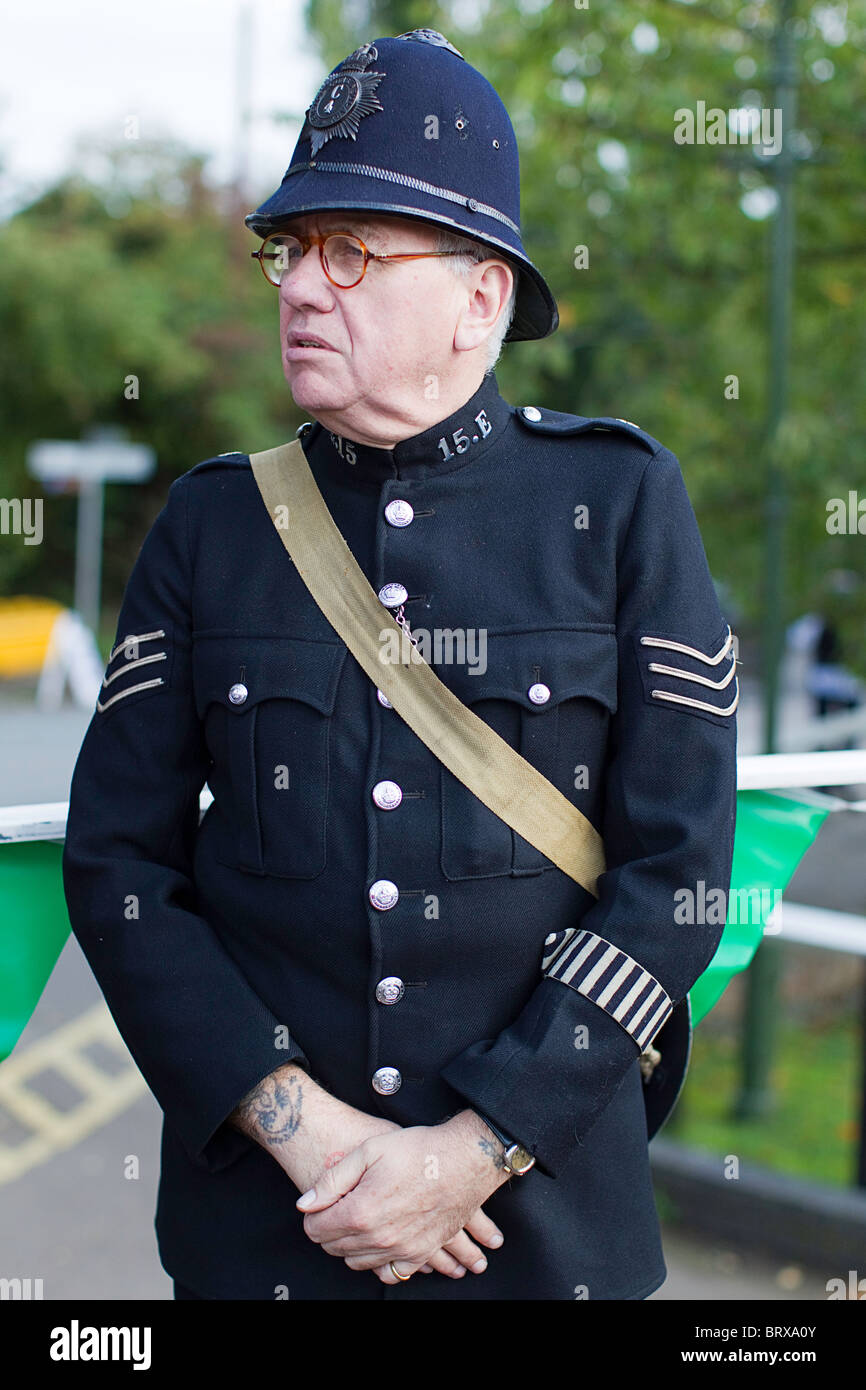
1940's War Years British Bobby Police Sergeant in Buttoned Blue Tunic with Sleeve Insignia
The use and role of black Americans as police officers from the early 1860's through the mid-1960's are examined. Abstract. Despite the data limitations of this study, it is apparent that the employment of blacks as police officers has increased steadily since 1940. Using the criterion of proportional employment (blacks shall be employed in.

Pin em United Federation LEOSPBA
By Bob Bragman Dec 23, 2016 Click ahead to see more historic photos of SFPD officers. Aaron Rubino/San Francisco Chronicle This week, we dug into the San Francisco Chronicle's archives and put.
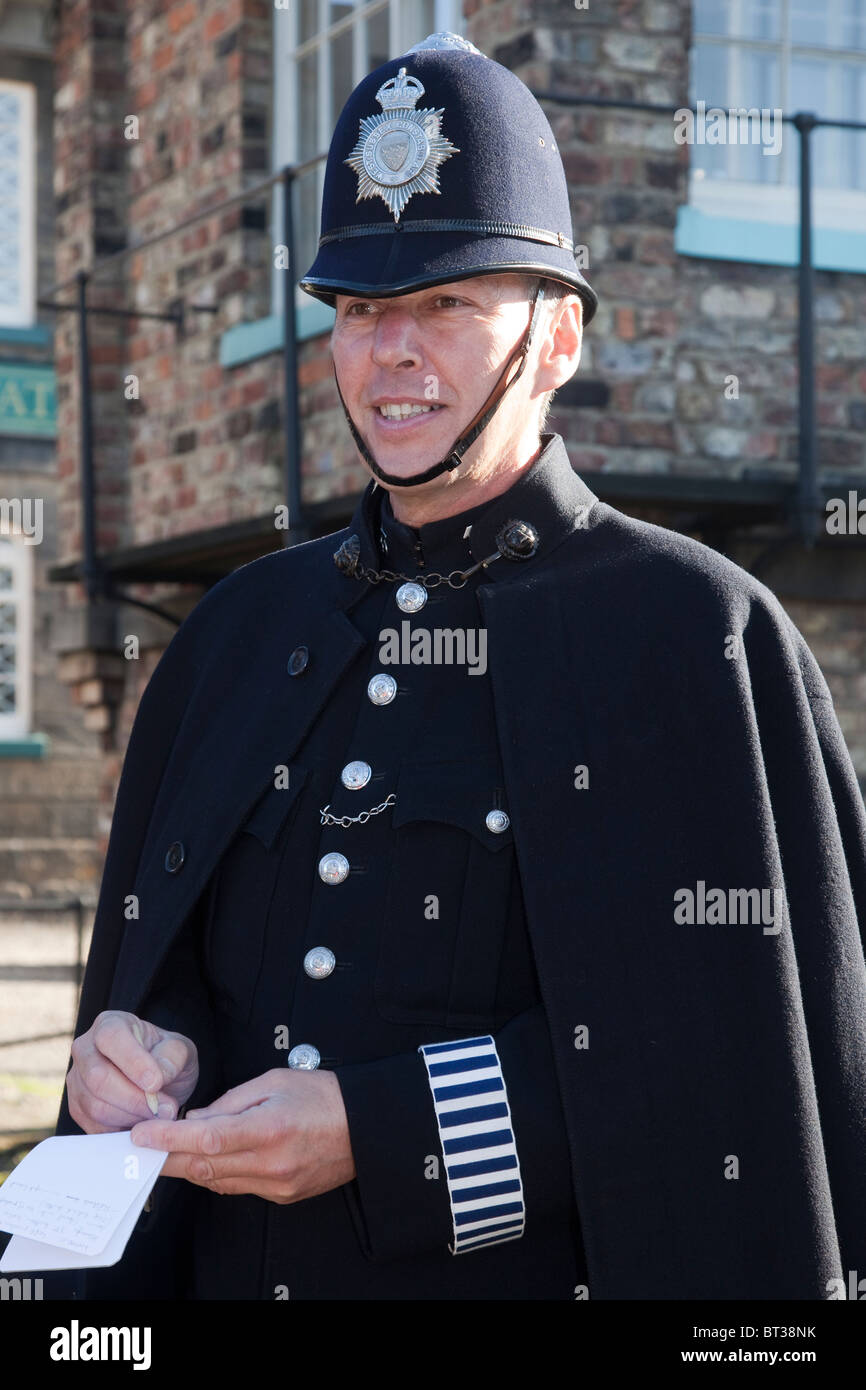
Costumed Reenactor 1940s British policeman in Uniform at Pickering Stock Photo Alamy
On the chaotic Sunday afternoon of September 4, 1949, truncheon-wielding police officers and stone-throwing rioters descended on cars belonging to the racially integrated audience of an outdoor.
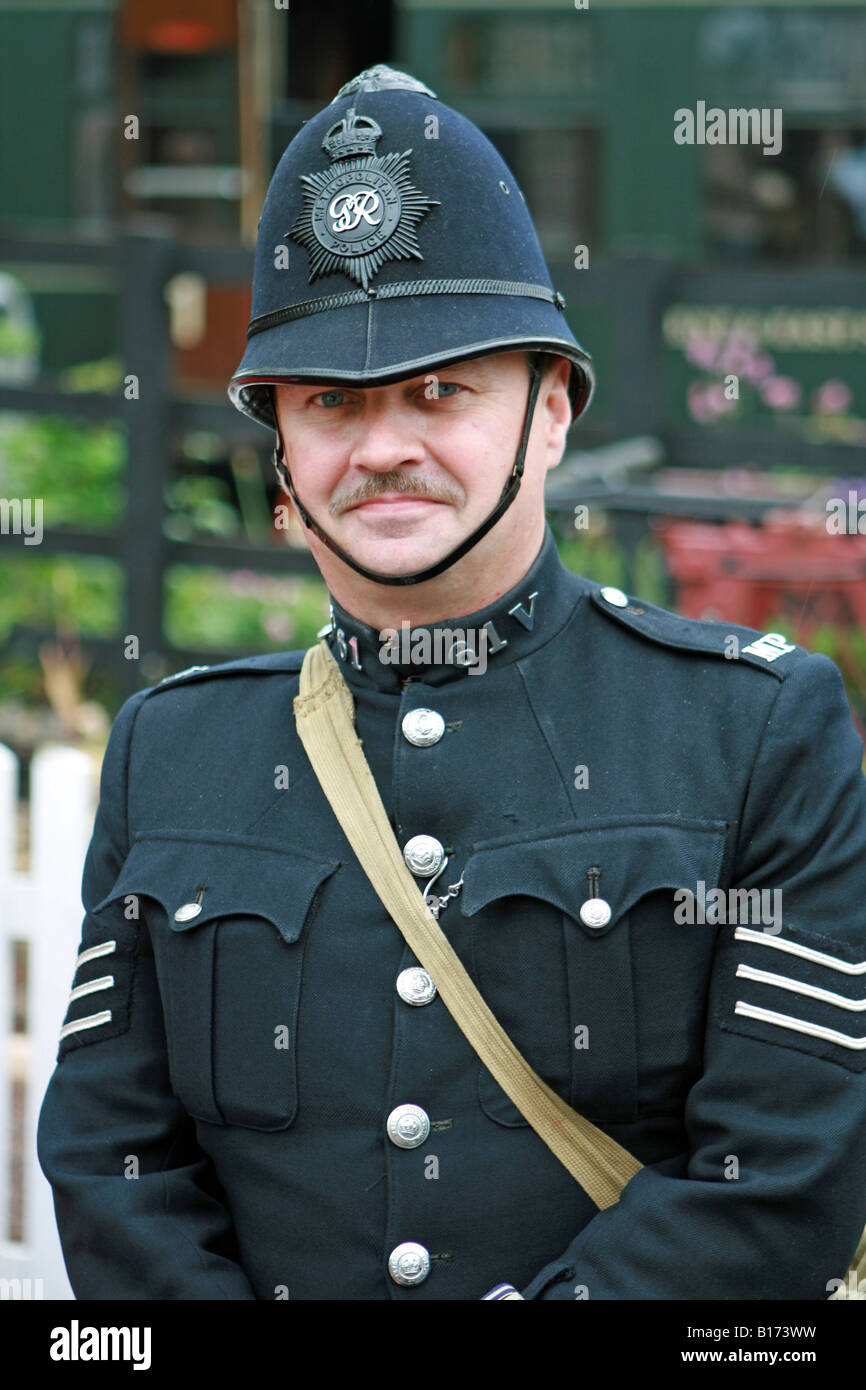
1940's Policeman Editorial Use Only Stock Photo Alamy
Based on research in obscure and difficult-to-find police professional literature, and closely examining New York City, it argues that the war's effects on policing did not amount to "militarization" as currently understood, but did inspire more standardized and nationally coordinated approaches to recruitment as well as military-style approache.

1940s police uniform Google Search Polizia, Uniforme
The first police departments in America were established in the 1800s, and in 1845 women began working as matrons in New York City's jails. This "social work" type of involvement by females continued into the late 19th century as many police departments hired widows of police officers as way to give them a kind of "death benefit.".
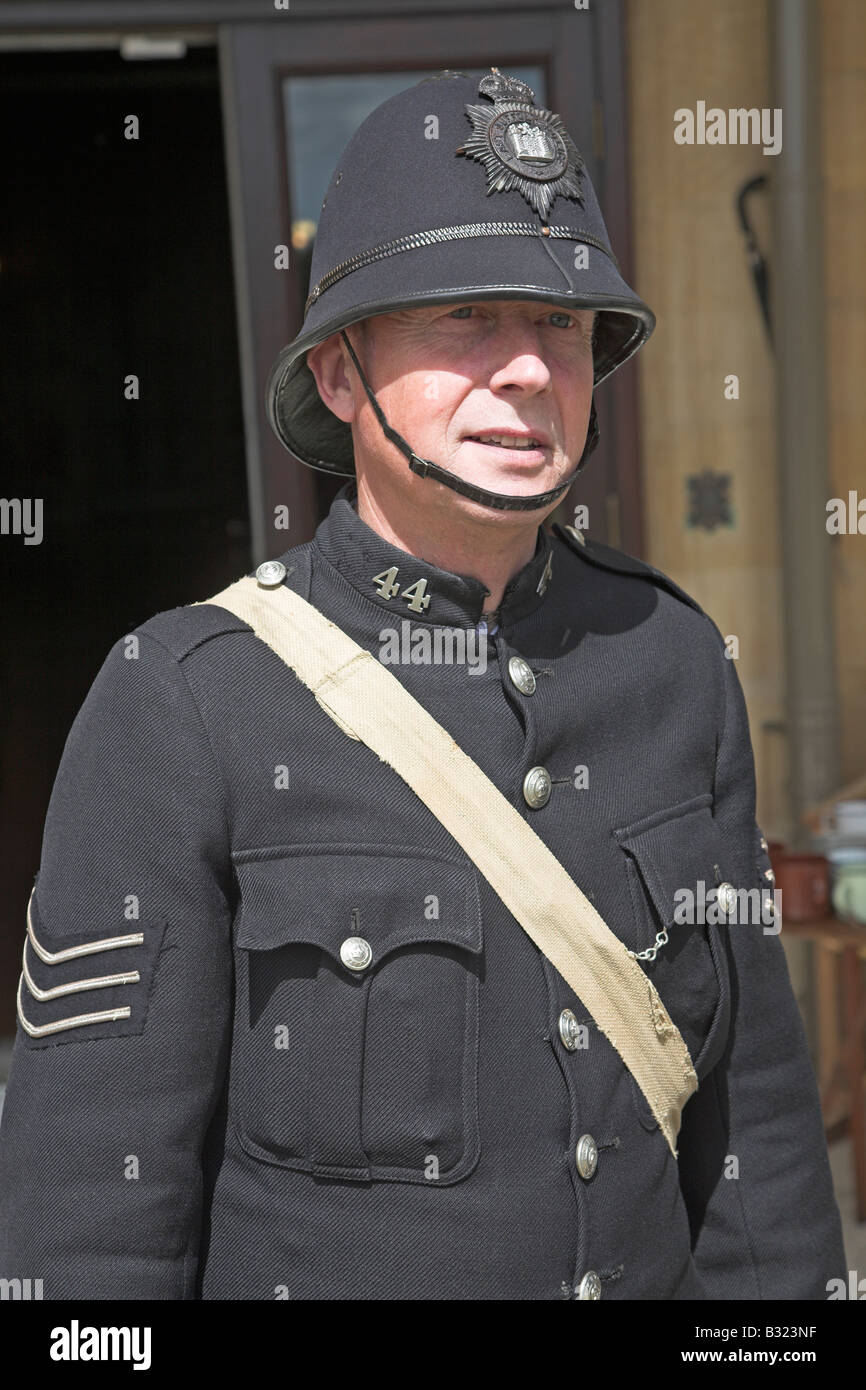
Man dressed in 1940s police sergeant uniform Stock Photo Alamy
Updated The evolution of a police officer. Bettmann & Anadolu Agency/ Getty The modern police force started in the early 1900s, but its origins date back to the colonies. In the South in the 1700s, patrol groups were created to stop runaway slaves. Now police departments across the country are facing accusations of brutality and racial profiling.
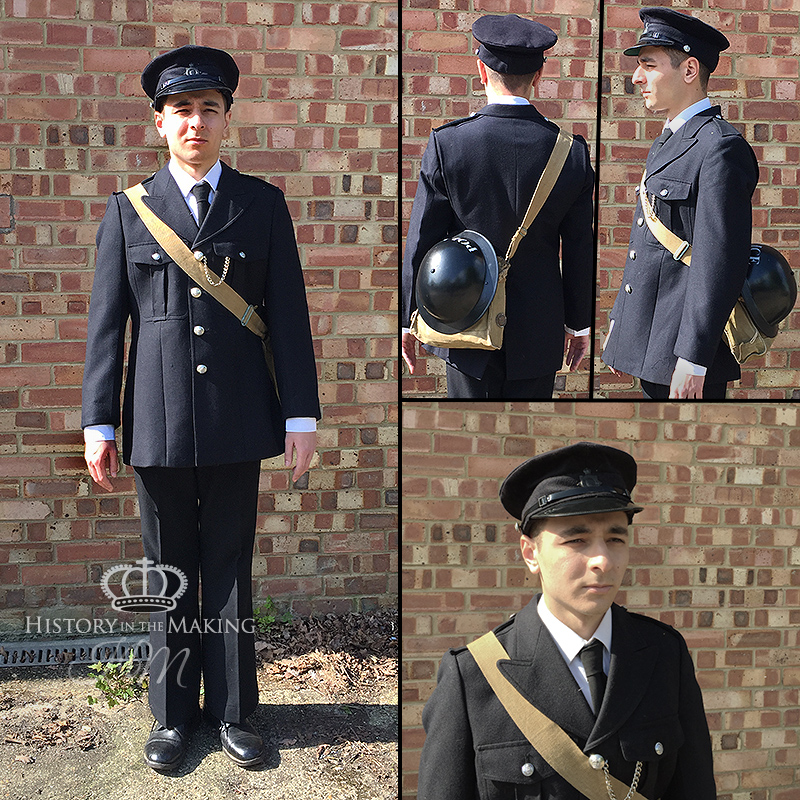
1940 London Police Officer. With Gas mask and helmet. History in the Making
The Ordnungspolizei (German: [ˈɔʁdnʊŋspoliˌtsaɪ]), abbreviated Orpo, meaning "Order Police", were the uniformed police force in Nazi Germany from 1936 to 1945. The Orpo organisation was absorbed into the Nazi monopoly on power after regional police jurisdiction was removed in favour of the central Nazi government ("Reich-ification", Verreichlichung, of the police).